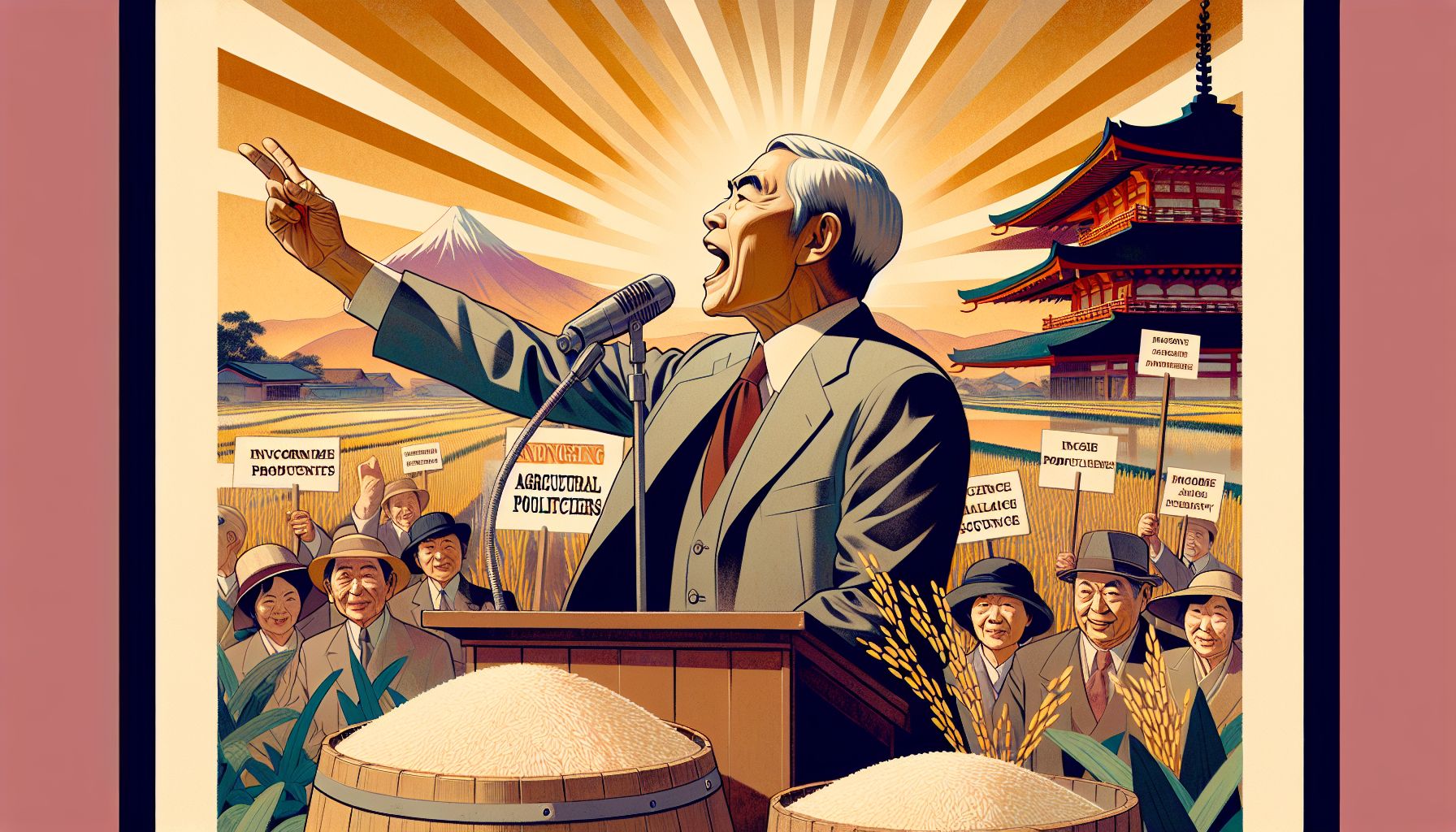Japan's Prime Minister Advocates for Strengthened Agricultural Policies

Tokyo, Monday, 30 June 2025.
Prime Minister Shigeru Ishiba highlights a shift towards income policies aimed at boosting rice production in Japan to ensure agricultural sustainability and security amidst global supply challenges.
Strategic Policy Shift for Rice Production
Prime Minister Shigeru Ishiba has emphasized the critical need for Japan to pivot its agricultural policies towards boosting rice production as a part of a broader strategy to enhance the nation’s food security. This comes at a time when Japan faces unprecedented challenges, with its self-sufficiency rate at a mere 38% on a calorie basis, which Ishiba notes as a vulnerability to national security [1]. The Prime Minister’s vision includes re-envisioning rice production policies, shifting from limiting production to encouraging increased output, by introducing novel income policies for producers [2].
NGOs and Government Collaboration
In collaboration with Japan Agricultural Cooperatives (JA), the government aims to consolidate farmland and use advanced agricultural machinery collectively to reduce costs and increase efficiency [3]. By promoting innovations and land aggregation, Ishiba aims to leverage JA’s expansive network to enhance agricultural productivity and stabilize rice pricing [1]. These measures will not only alleviate current supply strains but are also expected to align with the global trend of increasing food production in response to rising populations [4].
Addressing Environmental Challenges
As part of a multifaceted approach, Ishiba has proposed expanding support for hilly and mountainous rural areas, where unique challenges necessitate increased government intervention [4]. Recognizing the environmental functions such as watershed conservation and landscape maintenance, the emphasis is on producing high-value rice varieties that support both ecological sustainability and food security [2]. This targeted intervention seeks to reverse the decline in rural agriculture, curbing the abandonment of arable lands [5].
Managing Market Dynamics amid Policy Shifts
Ishiba has openly criticized the ongoing volatility in rice prices and questioned the effectiveness of current stockpile management strategies [3]. With rice prices having doubled over recent months, reminiscent of shocks akin to oil crises, strategic deployment of stockpiled rice has begun to stabilize market conditions [2][6]. Despite this, ensuring fair pricing continues to be a challenge, leading to further exploration of compensation schemes for producers without risking taxpayer allegiance [7].
Bronnen
- www.agrinews.co.jp
- www.agrinews.co.jp
- www.agrinews.co.jp
- www.macaodaily.com
- udn.com
- www.52hrtt.com
- www.pref.nagano.lg.jp